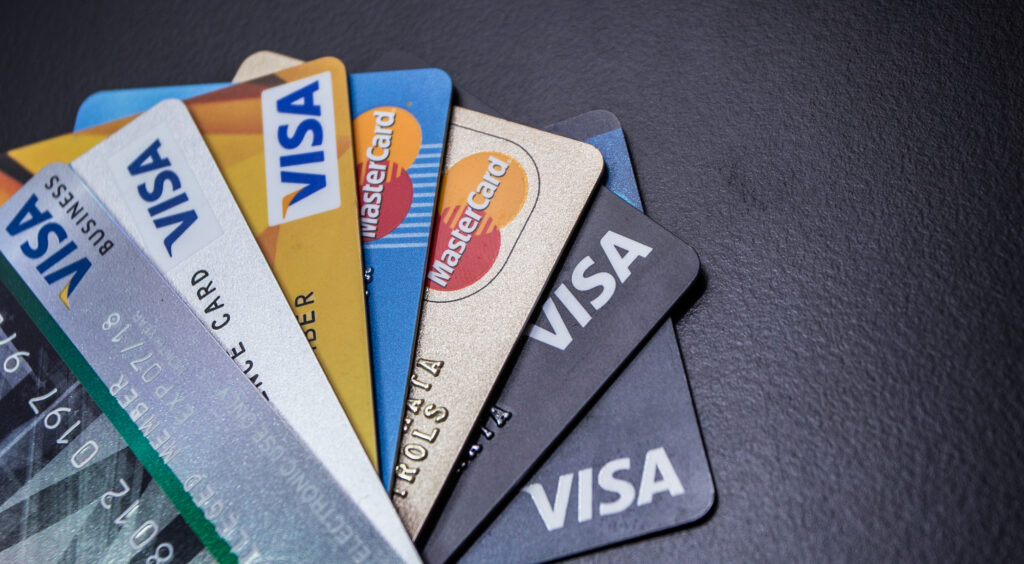
If you are drowning in credit card debt, it may be worth considering a loan to help alleviate your financial burden. Taking on more debt may seem counterintuitive, but a well-managed loan is a strategic move to pay off your credit cards and regain control of your finances. In this article, we will explore the benefits and drawbacks of using a loan to pay off credit cards, the different types of loans available, and when it may be the right time to consider this option.
Pros and Cons of Using a Loan for Credit Card Debt

Before committing to a credit card payoff loan, weighing the pros and cons is important to determine if it is the right solution for you. Here are some key advantages and disadvantages to consider:
Pros:
- Potential for lower interest rates compared to credit cards
- Consolidation of multiple credit card balances into a single payment
- Opportunity to improve credit score with responsible repayment
- Predictable, fixed repayment terms
- Potential savings on interest charges
Cons:
- Need to qualify for a loan based on creditworthiness
- Possible origination fees or other loan-related costs
- Could potentially increase overall debt if not managed responsibly
- It may require collateral or a cosigner, depending on the type
- Could impact credit score temporarily during the application process
When considering this financial solution, shopping around for the best terms and interest rates is essential. Understanding the pros and cons will help you make an informed decision about whether using a loan to pay off credit cards is the right choice for your financial circumstances. Different lenders offer varying rates, so comparing options can save you money in the long run. Additionally, some lenders may charge origination fees or prepayment penalties, so be sure to read the fine print before committing to this financial solution.
When to Consider Loans to Pay Off Credit Card Debt

While a loan may be a viable option to pay off credit cards, it is essential to assess your situation to determine if it is the right time to pursue this path. Before deciding to take out a loan, it is crucial to assess your financial situation and determine if it is the right choice for you. Consider factors such as your credit score, income stability, and ability to make timely payments. Here are a few scenarios where a loan may be worth considering:
- Your credit card debt has become unmanageable, with high balances and escalating interest charges.
- Your credit score has improved, making you eligible for better terms and interest rates.
- You are committed to changing your financial habits and are confident in making loan payments on time.
- You have researched and compared options, ensuring that the benefits outweigh the costs and potential risks.
Choosing the right time to take out a loan is crucial to ensuring its effectiveness in helping you pay off credit card debt and achieving financial stability. While consolidating debt can be beneficial, taking on additional debt without a solid repayment plan can lead to further financial strain. It’s important to create a budget and repayment strategy to ensure you can comfortably manage your payments and other financial obligations.
Why Choose a Personal Loan to Pay Off Credit Cards?
A personal loan can provide an alternative and potentially more affordable way to pay off your credit card debt. Unlike credit cards, which often have high-interest rates, personal loans typically offer lower interest rates and fixed repayment terms. By consolidating your credit card debt with a loan, you can simplify your monthly payments and save money on interest charges.
Another advantage of using a personal loan is the potential to improve your credit score. By reducing your credit card balances and making regular loan payments, you can demonstrate responsible financial behavior to credit bureaus. Over time, this can help increase your credit score, making qualifying for lower interest rates and better financial opportunities easier.
Alternative Loans to Pay for Credit Card Debt

When it comes to securing a loan to cover your credit card balance, several alternative options are available. Each option comes with its own terms, conditions, and eligibility criteria. Here are some common types of loans you might consider to find the best loan to pay off credit cards for you:
Payday Loans
Payday loans are short-term loans typically due on the borrower’s next payday. They are often used by individuals facing temporary cash shortages or unexpected expenses. Payday loans are characterized by high fees and interest rates, making them a costly borrowing option. Borrowers should approach these loans cautiously and consider alternatives, as they can lead to a cycle of debt if not repaid promptly.
Bad Credit Loans
Bad credit loans are designed for individuals with poor credit scores or limited credit histories. These loans may have higher interest rates and fees compared to traditional loans due to the increased risk for lenders. Bad credit loans can help borrowers access funds when they have difficulty qualifying for other types of financing. However, borrowers should carefully review the terms and conditions to ensure they can afford the payments.
Installment Loans
Installment loans involve borrowing a fixed amount of money and repaying it over a set period through scheduled payments or installments. These loans can be either secured or unsecured and may have fixed or variable interest rates. Installment loans are commonly used for large purchases, such as cars or appliances, or debt consolidation. They provide borrowers with a structured repayment plan and can help build credit when payments are made on time.
Debt Consolidation vs. Personal Loans

Stack of credit cards | Loan to pay off credit cards
When considering a loan to pay off credit cards, you may come across two common options: debt consolidation loans and personal loans. While they serve similar purposes, there are significant differences to understand.
A debt consolidation loan is specifically designed to combine multiple debts into one loan. By consolidating your debt, you can simplify your monthly payments, potentially lower your interest rates, and gain a more straightforward path to becoming debt-free. These solutions are often tailored for individuals with a significant amount of debt or struggling to manage multiple monthly payments.
On the other hand, personal loans are more versatile and can be used for various purposes, including paying off credit card debt. These loans typically have fixed repayment terms, lower interest rates than credit cards, and the potential to improve your credit score with responsible repayment.
Deciding between a debt consolidation loan and a personal loan will depend on your specific needs and financial situation. Consider factors such as your debt amount, the interest rates offered, and any additional fees or terms attached to the loan.
Apply Today with Wise Loan

Now that you have a better understanding of the benefits, types, and considerations of using a loan to pay off credit card debt, you may be ready to explore your options. Wise Loan is here to assist you in this journey by providing competitive personal loan options tailored to your needs. Apply now to start your application process.




